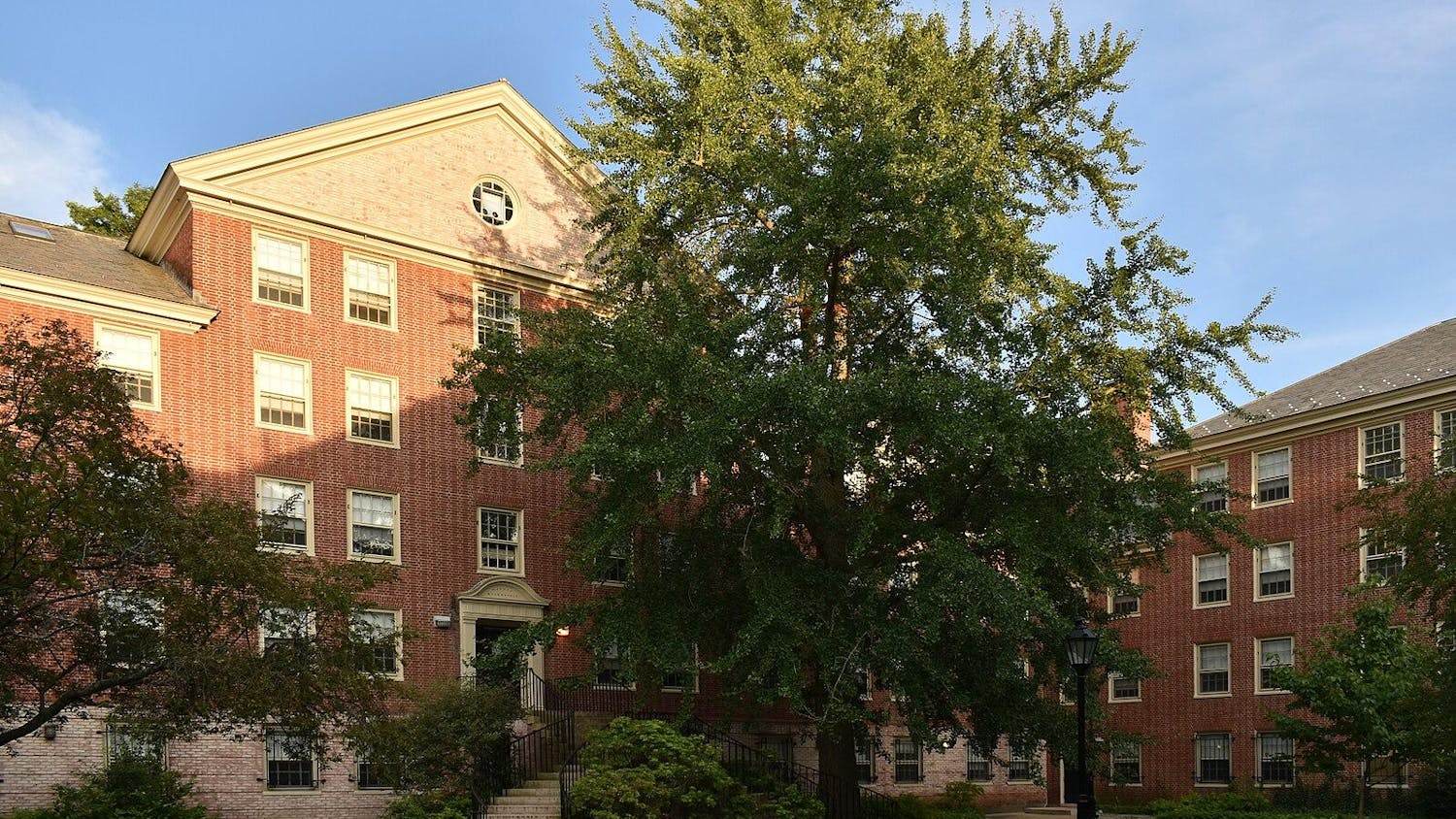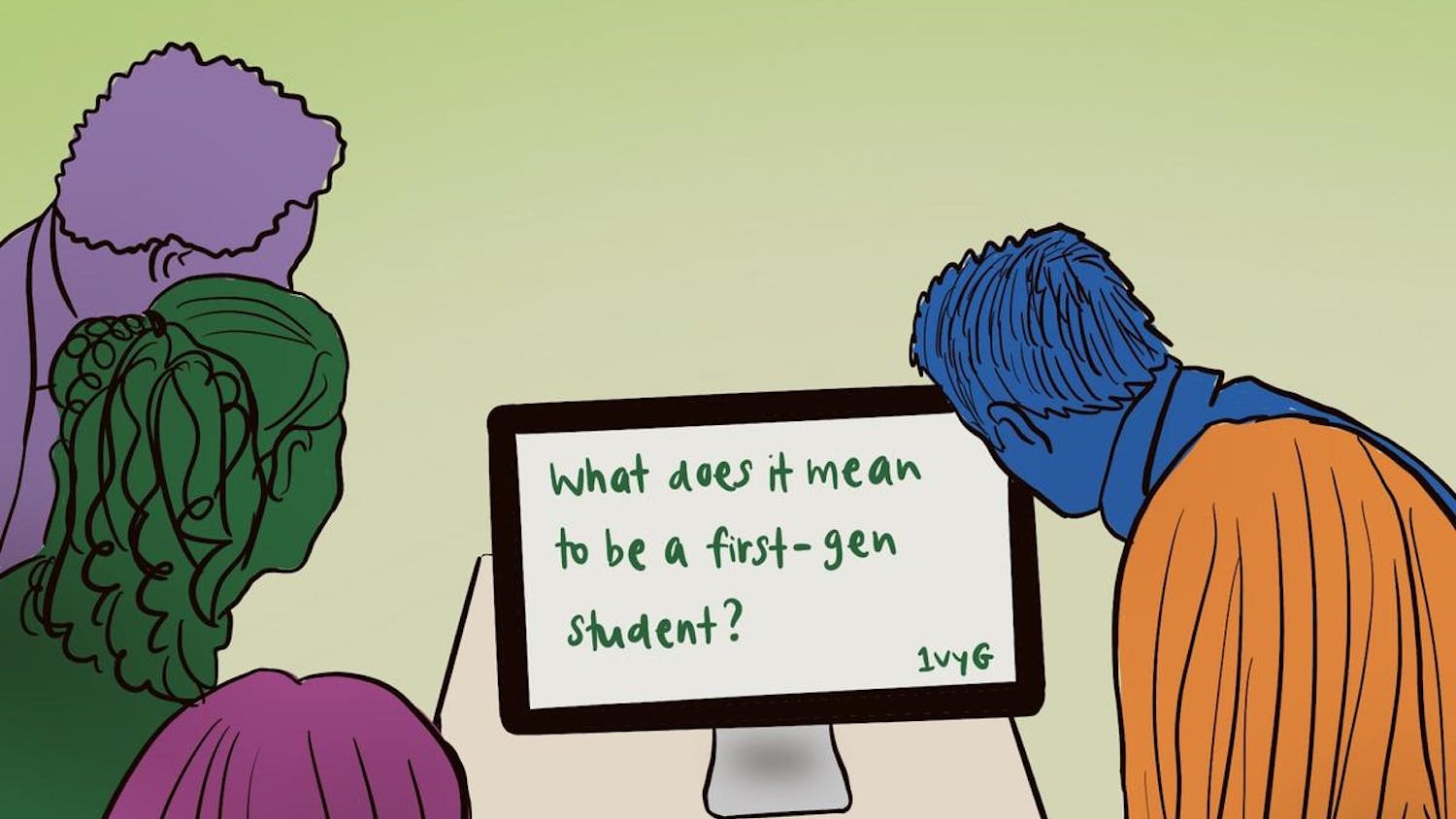The Undergraduate Council of Students proposed an amendment last month that would allow it to allocate its own budget rather than having its funding approved by the Undergraduate Finance Board. Though the amendment did not receive the required two-thirds majority necessary to pass, it raised wider questions about the historic relationship between UCS and UFB and the level of engagement in student government.
In the council's amendment proposal, UCS outlined persistent problems in defining the roles of each undergraduate governing body.
"UFB currently views itself as an equal and separate branch of student government at Brown," the proposal states. "This skewed relationship in the past has (led) to harsh dealings between the two entities and has impeded the efficient function of undergraduate student government."
The issues raised by the amendment discussion are not isolated. Past leaders of the council and the finance board have described the relationship between the two groups as "rival," "bitter" and "overly dramatic." Over the last decade, UCS and UFB have struggled to define the appropriate division of powers between the bodies amid a lack of student awareness of these two organizations tasked with overseeing campus life.
The creation of UFB
Before the creation of the finance board, the council and the now-defunct Brown Student Union together were responsible for funding student organizations, said Daniel Pipkin '14, the UCS-UFB liaison. Due to these overlapping responsibilities, "inconsistent budgeting decisions" led to some groups being overfunded and others receiving no funding at all, according to UFB's website.
To reduce these conflicts, the council and the student union formed the finance board in 1984 "for the sole purpose of making budgeting or student group funding more efficient," Pipkin said, rather than to serve as a check on the council's power. In 2003, the student union became inactive, and UFB became a subsidiary of the council. According to Article V of the council's current constitution, UCS entrusts UFB with the responsibility of funding student groups on campus.
In the years since 2003, the council and UFB have struggled with upholding a productive relationship between the two bodies, debating the council's right to oversee the finance board's operations and the board's ability to adequately and fairly fund the council.
A check on power
Such budgeting discussions arose during the 2006-07 school year when UFB, led by then-chair Cash McCracken '08, significantly reduced the amount of funding it approved for UCS to undertake projects on campus, decreasing the council's budget by around 70 percent, McCracken said.
"There was a number of years where UFB would mostly rubber stamp all of UCS's expenses and just allow whatever UCS wanted," said Ryan Mott '09, chair of UFB from 2007-08. But during McCracken's term, UFB noticed that the council was submitting "outrageous budgets," Mott said, citing an instance when UCS requested $17,000 to fund the set-up of chairs at their meetings.
Though council members were initially shocked by the budget reduction, many came to understand the reasoning behind the funding change, McCracken said.
John Gillis '07, president of UCS at the time, said that even with the change, the two bodies maintained a solid working relationship.
While Gillis was president, he said the council advocated for student groups to receive funding from UFB, but UCS received more funding from University departments than from UFB. As a result, the reduction in UFB funding did not seriously impact the council's ability to carry out its mission, he said.
Though the funding change did not directly strain the relationship between the governing organizations, "there's always been an inherent tension between UCS and UFB," McCracken said. "You want those two groups to be able to have some oversight over each other and frankly don't want them to be too cozy. That being said, obviously too much tension's a bad thing."
‘A transitional year'
Disagreements over funding resurfaced near the end of 2007 after an Oversight Task Force was created to address the way UFB distributed funds. The task force, assigned with reviewing the way UFB operates, was formed due to concern about UFB's "lackadaisical approach to allocating funds," Stefan Smith '09, head of the task force, told The Herald in Feb. 2008.
"We are in the midst of reform, and this is a transitional year," Smith said in March 2008.
Though the task force's recommendations are not included in the current UFB constitution, the task force affected the relationship between UCS and UFB, said Jose Vasconez '10, UFB chair from 2009-10.
"We felt that UCS was distrustful of the UFB, but we weren't really sure what we did to merit that," Vasconez said.
Despite efforts to keep lines of communication open, tensions ar
ose outside of the task force due to lack of available funding for student groups, said Michael Glassman '09, president of UCS from 2007-08.
"We usually would reject things that (UCS) would come in with, and they didn't like it because they would just come and expect to get everything through," said Ryan Mott '09, then-chair of UFB. "I wish that UFB's job was just to say yes, but that's not UFB's job. UFB's job is to say no, and that's what makes this hard."
Mott said UFB was only able to fulfill between 40 to 50 percent of the budget requests that year.
Glassman said that while funding was scarce across the board during his stint as president, the council was underfunded compared to other student governments. He said the strained relationship between UCS and UFB affected funding for the council.
"There were times that UFB tried to use UCS as an example or fund UCS less than it probably should have out of frustration with the student activities funding system," he said.
Tensions flare
Vasconez said tensions further heightened between the council and UFB in the 2008-09 school year, when UCS requested funding for such things as cell-phone chargers in the library and money to advertise for student groups in The Herald. Because they were student activities, UFB could not fund them, Vasconez said.
"When those two, primarily (The Herald) contract, didn't pass and UFB refused to fund, UCS grew more and more bitter towards UFB, and I think that animosity has existed for a few years since then," Vasconez said.
During this period, he also said issues arose when UCS would make "strong requests" that UFB fund particular projects.
"UFB's pretty independent as it is," Vasconez said. "The only issue that UFB has with regards to its independence with UCS that I see as an issue is that UCS has more and more taken the position that it is in charge of UFB and can tell it what to fund."
In March 2010, UFB proposed an amendment that would give the finance board the ability to fill its own vacancies in the event that a UFB member steps down from the board. The council is responsible for appointing members to fill these vacancies. Tyler Rosenbaum '11, then UFB secretary, former UCS member and a former Herald opinions columnist, said he spearheaded the amendment in an attempt to modernize UFB's constitution, which had not been changed in 30 years.
But UCS rejected the amendment proposal. "I thought that gave UFB a certain degree of power without any checks," said Ben Farber '12, former vice-president of UCS. Farber also said the failure of the amendment to pass did not seriously impact the relationship between UFB and the council.
But Rosenbaum said the amendment's failure reflected a persistent lack of dialogue between the two bodies.
"UCS should have approved the minor changes like that," he said. "If there is a lack of comity on minor things, how are you going to have agreement on bigger things?"
Rosenbaum said there seemed to always be some distrust between UCS and UFB, and tensions were especially high when discussing the council's budget. The council was uncomfortable with UFB's closed deliberations, and UFB felt the council was "trying to change them," he said.
UFB dealt with a very limited budget and was only able to fund around a fifth of the requests made each year, Vasconez said. He said student groups generally requested around $6 million in funding, though UFB was only able to allocate about $1.4 million.
As UFB decreased the council's budget, the relationship became increasingly tense, Rosenbaum said.
Apathy through the ages
Farber said the council had a strong relationship with UFB when he was vice president from 2010-11. Though some UCS leaders have argued that the relationship between the two bodies affected the council's funding, Farber said he did not find this to be the case.
"I don't think that UFB ever held any bias either for or against UCS when it came to funding decisions," he said.
Adam Kiki-Charles '11, the chair of UFB at the time, said good communication between the two bodies allowed for a strong relationship in the face of budget crunches.
But the two bodies suffered from a lack of student engagement, Kiki-Charles said. Farber, vice-president of UCS from 2010-11, said he tried to make communicating with the student body a top priority when he served on the council. To get student feedback on the council's activities, UCS would hold office hours in the dining halls and set up a table on the Main Green once a week, he said.
Under current UCS President Ralanda Nelson '12, the council also reinstated dorm rounds, which had not been practiced in recent years.
Vasconez said the bodies struggled with student engagement in the process during his time as well. Students would rarely show up to meetings or public forums hosted by student government, making it difficult to promote the roles of UFB and UCS on-campus, he said.
In elections to vote for UCS and UFB leadership over the past several years, roughly one-quarter of the student body voted. In 2008, around 1,300 students voted. This number increased to 2,279 in the 2009 elections. But in the 2010 and 2011 elections, the number dropped back to just over 1,500 participants, The Herald reported at the time.
Dara Illowsky '14, a member of the Brown Band, said she does not understand the roles of UFB and UCS and does not think UCS communicates effectively with the student body. In a question included in the Herald poll conducted last fall that asked students if they approved or disapproved of the way the council was handling its job, 43 percent of students responded that they lacked sufficient knowledge of the council to answer.
Though UCS declined to release the specific results from this year's amendment, including the number of students who voted, Sam Gilman '15, UCS communications chair, said the debate surrounding the referendum helped increase awareness of student government.
"I think now a lot more people know who we are and what we do," he said. "It can bring student government more into the community."
Future steps
With the failure of the proposed amendment, UCS and UFB will be forming a joint committee to look into UFB's funding structure and clarify the relationship between the two bodies. Two council members, Nick Tsapakos '13 and Holly Hunt '13, two UFB me
mbers and an undecided number of community members will sit on the committee.
The committee will look into the history of UCS and UFB, how they have worked together in the past, the funding available for student groups, whether the council is funded appropriately and how the University's funding structure for student groups compares to that of other schools, said Pipkin, the UCS-UFB liaison.
The committee will then design a proposal "looking at ways to recognize that student government has a different role on campus than a student group," Gilman said. "I think they are just going to adjust the process a little bit to make up for the fact that student government operates differently."
The proposal will come in the form of a UCS code change to address the funding relationship between the bodies, Pipkin said. According to the UCS Code of Operations, a code change will only pass with a two-thirds majority vote by the council.
"Hopefully, we can come up with a structure that is not too different from what happens right now but gives UCS more leeway," said Michael Perchonok '12, vice-chair of UFB. "If they come up with the same proposal that UCS presented to us last semester, it's probably going to be rejected, and nothing's going to come of it."
Perchonok said the committee may consider easing the process through which UCS receives funding while still holding the council to the same spending standards applied to student groups.
"The most important message coming forward is students realize that there's a problem now and that student government, UCS, UFB and the community need to come together to figure out what's the most efficient allocation of resources for student government and student groups and to fix this problem," Gilman said.




